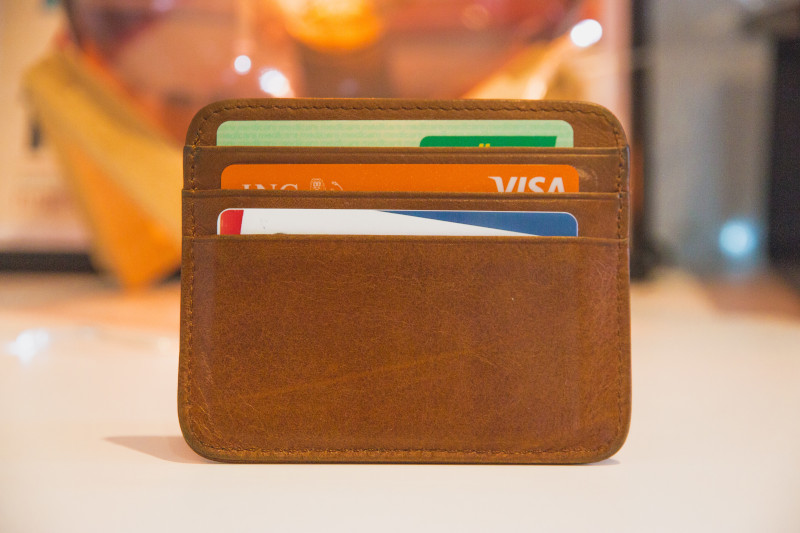For some people, online shopping is like a professional sport. Just like the Olympics for sports, seasonal and end of year sale are the greatest times for dedicated online shoppers. In the past few years, there had been an increase of popularity of Black Friday and end of year sale in the region. People aren’t only visiting shopping malls to lay their hands-on good bargains, they’re also visiting eCommerce websites.
An annual MasterCard behavior study recently revealed that nearly 35% of Middle East citizens have accessed internet to shop online. 44% of these people have made at least one online purchase in the last three months.
In this article, we will list 10 tips to help you have a safe shopping experience and shop smarter. All you’ll need to do is click “Add to Cart” and enjoy the deals and promotions.
10 tips for online shopping
Before you click the ‘Buy’ button this holiday season, check out these tips to help you enjoy safer online shopping.
1. Set price alerts
Let’s say you’re looking for one of these cool wireless headphones and you found the perfect one, but the price is slightly high. What can you do? Set a price alert to be notified when the price changes.
You can use a tool like Savelist to compile and organize all your wish list items from multiple retailers in one place. You can also use it to receive push notifications or emails whenever any of these items goes on sale.
2. Use credit over debit
You’ll usually get the best protection when you use a credit card. Why?
If you need to return something after you've bought it online, you'll get your money back faster if you used a credit card over a debit card. Because when you shop with a debit card, the money comes right out of your checking account, so it takes longer to replace. Also, you don't want your checking account to get in the hands of a harmful site.
You can also try virtual credit cards. How do they work?
The issuer randomly generates a number that’s linked to your account, and you can use that number just like a normal credit card number anywhere online. You can also choose the amount of money in the card and when the number expires.
Vodafone provides its users with this service, in a few easy steps you can issue your virtual credit card and use it for online shopping.
3. Check the return policies
If you’re a hesitant shopper (aka someone who shops then returns things later), you need to keep a close eye on return policies. It can vary from each store to the other. Some stores will give you a little longer to return your purchases over the others. While some stores will let you exchange the item with another or will give you store credit in return.
Make sure you know exactly how long you have by reading the return and exchange policies.
4. Don't save your credit card info

We know that it’s very easy to shop online when your credit card information is saved in your web browser. It’s better safe than sorry, especially when it comes to data breaches and information security.
The extra step of having to pull out your credit card and enter your information will save you from possible threats.
5. Follow your favorite brands on social media
Just like you follow influencers and your friend on social media to see all their latest stories and posts. You can also start following your favorite brands on social media.
Not only do they post the latest deals, but they might also reward loyal customers by offering exclusive offers, competitions and campaigns on social media.
6. Avoid public Wi-Fi
You might be sitting in Starbucks connected to their public Wi-Fi network, and you’re tempted to shop. We wouldn’t really recommend this, why?
Wi-Fi networks use public airwaves. This means that someone can intercept the data you send and receive while on free public Wi-Fi. Shopping online usually means giving out information that an identity thief would love to grab, including your name and credit card information.
It’s never a good idea to shop online or log in to any website while you’re connected to public Wi-Fi.
7. Create strong passwords
If someone has the password to your account, they can log in, change the shipping address, and order things while you get stuck with the bill.
Help keep your account safe by locking it with a strong password, using “password123” isn’t really safe. How can you create strong passwords?
- You can use password generating tools like LastPass.
- Use a complex set of at least 10 lowercase and uppercase numbers, letters, and symbols.
- Don’t use personal information that others can find or guess, like your birthday, your name, or your favorite color.
- Don’t use the same password on multiple accounts.
Related: 10 best practices for creating and securing a strong password
8. Shop at websites you trust
In 2017, the Internet Crime Complaint Center received nearly 300,000 online-theft complaints. Victims reported losses totaling .4 billion.
Shopping in real life offers one advantage: you can usually be sure the business and the inventory exist. On the internet, some businesses are fabricated by people who are just after your credit card information and other personal details.
To play it safe, consider online shopping only with well-known websites and apps or brands’ official website or retailers that you trust and have shopped with before.
9. Check out website security
In case you’re not buying from a brand’s official website or from a well-known online shopping platform, you need to check if the website that you’re about to buy from is safe or not.
But how?
- Search: The first thing you can do is to type the website's name into a search engine and review the results. You might find Quora results or blog articles reviewing it.
- Green lock: That small lock icon in the corner of your URL bar tells you that the page you’re on has an SSL certificate installed. If the website doesn’t have an SSL certificate, it is a sign that you should run for your life.
- The URL starts with “https”: This another sign that the website is secured with an SSL certificate. If you don’t see the lock or the “s” after “http,” then the webpage isn’t secure. There is no privacy protection attached to these pages.
- Reviews: Look for customer’s feedback and reviews on the website. Trustworthy websites will either showcase customers’ reviews and feedback under each product or dedicate a page to display customers’ reviews and testimonials.

You need to be very careful with whom you give your personal and credit card information to. As hackers and fraudsters are getting are getting smarter each day and they will make their website seem legit to fool you.
10. Watch out for email scams
It’s wise to sign up for your favorite brands’ newsletters to receive the latest updates and offers. It’s usually tempting to open these emails titled “special offer” or “limited time offer.” But beware, that could be a trap set by hackers.
It’s better to play it safe. If you receive an email from an unknown sender or unrecognizable sellers delete them, don’t click on any links, and don’t open any attachments from individuals or businesses you are unfamiliar with. As, they might infect your computer with viruses and malware.
The final resolution
It’s smart to practice safe online shopping during the seasonal sales. But the sale doesn’t last forever. Make this year’s resolution to shop safely online year-round.





